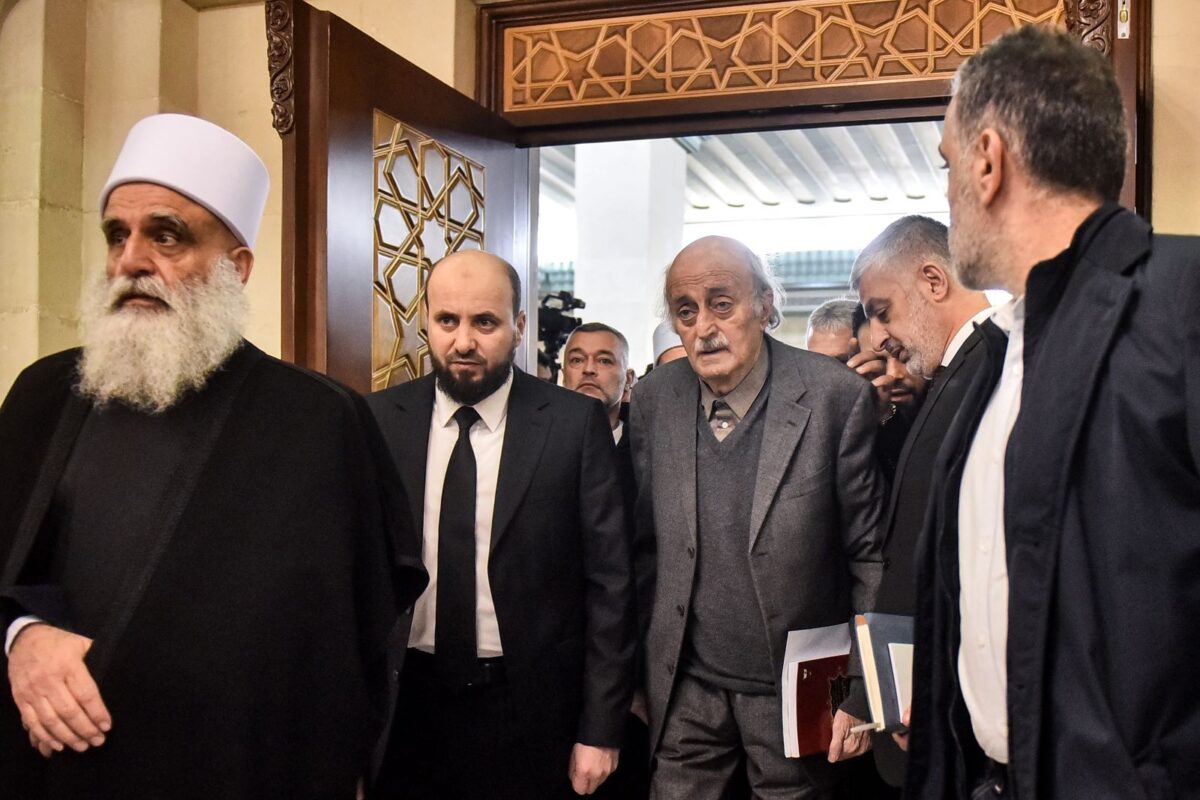
In the ever-shifting landscape of Middle Eastern politics, Walid Jumblatt’s recent visits to Damascus and Ankara have sparked significant intrigue
As the leader of Lebanon’s Druze community, Jumblatt’s actions often carry both symbolic and practical weight. But his decision to engage with two powerful figures – Ahmad Sharaa in Damascus and Erdoğan in Ankara – raises questions about his motivations and what they mean for Lebanon’s future.
Is Jumblatt acting out of a need to protect his community, or are his visits part of a broader strategy to shape the region’s post-conflict order? More importantly, do such engagements contribute to state-building, or do they risk further entrenching sectarian politics?
A meeting in Damascus: Julani stateman’s look
Jumblatt’s visit to Damascus marked a significant moment in the region’s political narrative. The leader of a historically small but influential sect sitting down with Ahmad Sharaa – now rebranded as a statesman – symbolized more than a political encounter; it reflected the changing dynamics of power in Syria and the region.
Sharaa, once known as a militant commander, greeted Jumblatt in a suit, a stark departure from his military fatigues of the past. His rhetoric mirrored this transformation. He spoke positively of Lebanon, emphasizing the need to distance the region from the conflicts of the past, even referencing the events of 1,400 years ago – a clear nod to the sectarian divisions that have shaped the Middle East. For Jumblatt, whose political philosophy often straddles pragmatism and symbolism, this meeting was a calculated move. It signaled an acknowledgment of Sharaa’s growing influence while attempting to ensure the Druze community’s place in the evolving power structure.
The Druze and the Turkish connection
Jumblatt’s subsequent visit to Ankara to meet with Erdoğan further complicates the narrative. Turkey’s role in Syria’s post-Assad reality is undeniable, and Erdoğan’s support for Sharaa has positioned him as a key player in the region. But why would a Druze leader, representing a small, and today a vulnerable sect, seek an audience with the Turkish president?
Some speculate that Jumblatt’s visit was aimed at countering any rising sentiment among the Druze for autonomy or statehood – a move that would likely draw the ire of neighboring powers. Others suggest that he is seeking Erdoğan’s assurances for the protection of Druze communities, particularly in Syria, where they remain vulnerable amid shifting alliances.
The motivations behind Jumblatt’s moves
Jumblatt’s visits can be understood through several lenses:
Community protection: As a leader of a minority sect, Jumblatt’s primary concern is often the survival and security of his community. Engaging with Sharaa and Erdoğan could be seen as an effort to secure guarantees for the Druze, particularly as power shifts in Syria.
Balancing act: Jumblatt has a long history of navigating Lebanon’s sectarian and geopolitical complexities. By meeting both Sharaa and Erdoğan, he positions himself as a pragmatic mediator who can engage with all sides.
Avoiding isolation: With Syria’s future increasingly influenced by Turkey and figures like Sharaa, Jumblatt may feel compelled to engage now rather than risk being sidelined in future regional arrangements.
State-building or sectarian entrenchment: The question remains, do these visits contribute to state-building, or do they reinforce sectarian politics? By engaging outside of formal state-to-state channels, Jumblatt risks perpetuating a system where sectarian leaders prioritize their communities over national unity.
Implications for Lebanon
Jumblatt’s actions have broader implications for Lebanon, a country already struggling with deep divisions and the erosion of state authority:
A missed opportunity for state-to-state engagement: By meeting Sharaa and Erdoğan as a sectarian leader rather than as part of a unified Lebanese delegation, Jumblatt reinforces the perception that Lebanon’s politics are dictated by sectarian interests rather than national priorities.
Potential risks to the Druze: While Jumblatt’s pragmatism has often been an asset, his moves could backfire if they are perceived as self-serving or if they alienate other regional actors.
The challenge of sovereignty: Jumblatt’s engagement with external powers highlights Lebanon’s ongoing struggle to assert sovereignty. Without a strong central state, leaders like Jumblatt are left to navigate the region’s complexities on their own terms.
A path forward?
Jumblatt’s visits to Damascus and Ankara underscore the complexities of leadership in a region defined by shifting alliances and unresolved grievances. While his actions may serve immediate sectarian interests, they raise critical questions about Lebanon’s long-term future.
Should Lebanon’s leaders focus on individual community survival, or should they prioritize state-building and national unity? For Jumblatt, the challenge is to balance his role as a protector of the Druze with his responsibility as a Lebanese leader. Without a broader strategy for strengthening Lebanon’s institutions and sovereignty, these moves risk perpetuating the very divisions they seek to address.
Ramzi Abou Ismail is a political psychologist and researcher at the University of Kent.
The views in this story reflect those of the author alone and do not necessarily reflect the beliefs of NOW.








